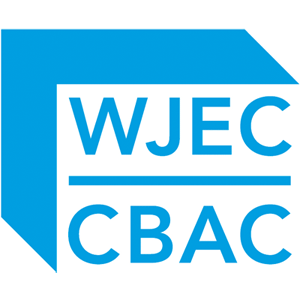
English GCSE Revision
Astor College


Writing
Astor College offers two different types of entry for GCSE English. There is the Foundation tier and the Highertier. The Foundation tier allows pupils to achieve a grade G-C; the Higher tier allows pupils to achieve a grade D-A*. We carefully monitor each pupil to decide tier they should be entered to sit. This is decided by assessing their predicted grade, current ability, potential and their attitude to learning.
On this page we will explain the examination and also offer tips. We will focus on the Writing examintion here and you can read about the Reading examination by selecting the menu 'GCSE English Language'
The Writing examination lasts for one hour. The exam tests how well pupils can write non-fiction texts. This means that they will be asked to produce two pieces of written work. They could be asked to write a formal or informal letter, a report, a review, an article, a speech or a talk. They will be marked on the content of what has been written, the structure and layout as well as SPAG (spelling, punctuation and grammar). It also tests the pupils ability to communicate this information in a clear and coherent way. This exam is worth 30% of the final GCSE grade.
GCSE English - WJEC Examination Board

Useful Links to help with revision:
Foundation Tier Past Papers
http://pastpapers.download.wjec.co.uk/s11-4172-01.pdf
http://pastpapers.download.wjec.co.uk/w13-4172-01.pdf
Higer Tier Past Papers
http://pastpapers.download.wjec.co.uk/w12-4172-02.pdf
http://pastpapers.download.wjec.co.uk/w13-4172-02.pdf
Always remember PALL
There is an extremely simple and efficent way to achieve a top grade in the Writing examination. This is called the PALL procedure; PALL stands for PURPOSE, AUDIENCE, LAYOUT and LANGUAGE.
PURPOSE - What does the writing aim to do?
Argue/Persuade/Advise/Inform/Explain/Describe/Ana-lyse/Re-view/ Comment/Instruct?.
AUDIENCE - Who is the text written for?
Teenagers/Women/Men/Pensioners/Parents/People with particular interests/etc…
LAYOUT - How is the text presented?
Headlines/Sub-headings/Slogans/Italics/Bullet points/Bold text/Photos/etc..
Diagrams/Logos/Colour/Captions/Columns/Boxes/
Cartoons/Grids/etc…
LANGUAGE - Consider the formality of the piece. Formal/Informal
What’s the mode of address?
1st person (I)/2nd person (you)/3rd person (he/she/they) /personal/ impersonal/detached?
What types of words or phrases are being used?
Technical/scientific/descriptive/informative/factual/
emotive/serious/ humorous
What linguistic devices are being used?
Fact/Opinion/Rhetorical questions/hyperbole (exaggeration)/irony/ anecdote/puns/etc…
Formal Letter
1) A ban on smoking in public places was introduced in 2007. Write a formal letter to your local newspaper giving your views on whether this is a good or bad thing.
2) A TV programme recently linked violence to video games. Write a formal letter to your local MP to explain your views on the link between violence and video games.
Writing Exam Practice
Informal Letter
1) Imagine you have an elderly relative who lives in Australia. Write an informal letter to them to discuss any family news they may have missed.
2) An exchange student has written to you asking if they can stay at your home in the school holiday. Write an informal letter that tells them what they can look forward to in your home town.
Report
1) Your college has been focusing on reducing its carbon footprint. Write a report to your college principal outlining the problem, the cause and the solution to making your college greener.
2) As a a resident of your home town you have realised there is a lack of activities available for teenagers. Write a report to your local council outlining the problem, the cause and the solution to youth boredom in your town.
Review
1) Write a review of your favourite video game. It will appear in a newspaper so consider the audience you are writing for.
2) Think about the last book you read, the last film you watched or the last album that you listened to. Write a review for your college's newsletter.
Article
1) Write an informative and entertaining article about being a teenager. This will be published in your college's magazine.
2) Write an article for a travel magazine based on a place that you have visited and found interesting.
A Speech or Talk
1) Write a speech about someone you admire. Your speech will be performed in a college assembly.
2) Write a speech entitled 'Things I couldn't live without'. The speech will be delivered to a conference of parents at your local town hall.
Leaflet
1) Write a leaflet that encourages people to give up smoking.
2) Write a leaflet that promotes your favourite sporting event.


